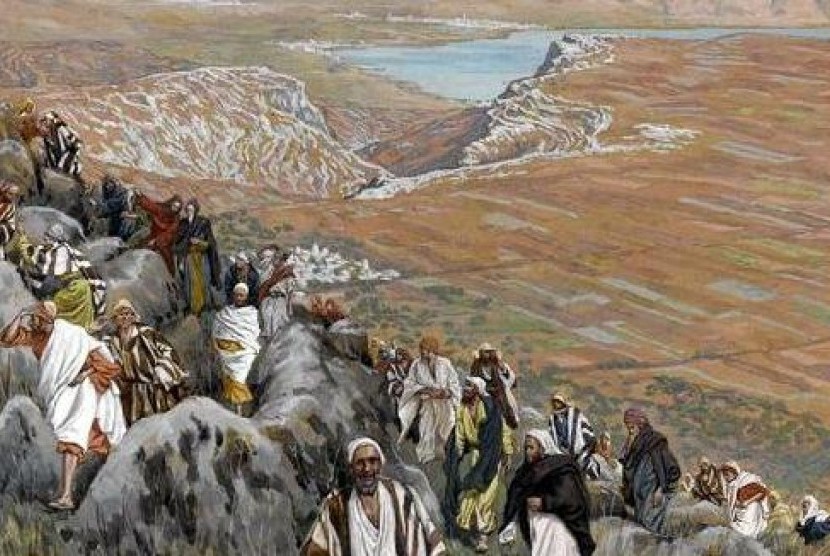The Qur’ānic Charge-Sheet against Banī Isrā’īl
Introduction
The Qur’ān addresses Banī Isrā’īl—the Children of Israel,with deep historical memory and moral gravity. They were a nation chosen by Allah, endowed with prophets, revelation, and divine guidance. They were rescued from Pharaoh’s tyranny, given the Torah, and entrusted with the leadership of faith and justice. But, as the Qur’ān repeatedly recounts, they broke their covenant, altered divine laws, killed prophets, and corrupted their moral order.
This is not presented merely as an ancient chronicle but as a living moral lesson. The Qur’ān’s purpose is not to condemn an ethnic group but to expose the spiritual and social traits that destroy any nation granted divine favour: arrogance, ingratitude, hypocrisy, greed, and defiance of moral law. In that sense, this “charge-sheet” is a mirror for all communities that inherit revelation but misuse it.

https://mrpo.pk/abraham-accords/
(Bani Israel happens to be the community mentioned most in the Quran, reprimanded by Allah severely, reminded of the favors they received in ample, yet instead of being grateful they ended up bringing up the wrath of Allah upon them. Their rebellion against the commands of Allah, defying His orders, sets an examples for the Muslims, the readers of the Quran, to beware of imitating them in disobedience and rebelling against the command of Allah or else they might meet the same fate. This article discusses and recalls the punishment that Bani Israel received and will continue to receive till the day of Qiyamah (Day of Judgment), a fate that will await many Muslims of this Ummah as well if they follow them.)
https://www.aljumuah.com/three-punishments-of-bani-israel-that-muslims-should-be-aware-of/
What follows is a chronological presentation of the principal charges Allah brings against Banī Isrā’īl in the Qur’ān.
- Forgetting Allah’s Favours and Breaking the Covenant
Surah al-Baqarah (2:40–42)
يَا بَنِي إِسْرَائِيلَ اذْكُرُوا نِعْمَتِيَ الَّتِي أَنْعَمْتُ عَلَيْكُمْ وَأَوْفُوا بِعَهْدِي أُوفِ بِعَهْدِكُمْ وَإِيَّايَ فَارْهَبُونِ
“O Children of Israel! Call to mind the (special) favour which I bestowed upon you, and fulfil your covenant with Me as I fulfil My covenant with you, and fear none but Me.” (2:40, Yusuf Ali)
Context:
This verse introduces Allah’s address to the Israelites after recounting the creation of Adam and the fall of mankind. It recalls how Allah liberated them from Egypt and made them custodians of revelation, yet they repeatedly failed to keep their covenant.
Tafsīr:
Ibn Kathīr explains that “My covenant” refers to obedience, gratitude, and belief in all prophets, including the final one (Muhammad ﷺ). Maudūdī notes that Allah’s grace was conditional upon continued righteousness, but the Israelites substituted pride for piety. Sayyid Qutb sees in this verse a timeless warning: spiritual privilege can become spiritual ruin if it breeds arrogance.
-
Ingratitude and Complaining against Divine Provision
Surah al-Baqarah (2:57, 2:61)
وَظَلَّلْنَا عَلَيْكُمُ الْغَمَامَ وَأَنْزَلْنَا عَلَيْكُمُ الْمَنَّ وَالسَّلْوَىٰ… كُلُوا مِنْ طَيِّبَاتِ مَا رَزَقْنَاكُمْ
“We gave you the shade of clouds and sent down to you manna and quails: ‘Eat of the good things We have provided for you.’” (2:57)
وَإِذْ قُلْتُمْ يَا مُوسَى لَنْ نَصْبِرَ عَلَىٰ طَعَامٍ وَاحِدٍ…
“And remember ye said: ‘O Moses! We cannot endure one kind of food; so pray to thy Lord for us to produce for us of what the earth grows…’” (2:61)
Context:
After escaping Egypt, Banī Isrā’īl were fed miraculously during their desert journey. Yet they complained, preferring common vegetables to heavenly food.
Tafsīr:
Ibn Kathīr: This complaint reflected their materialistic nature and spiritual blindness. Maudūdī: they longed for the familiarity of servitude rather than the hardship of freedom. Qutb: it represents the decay of willpower that prefers appetite over obedience.
-
The Worship of the Golden Calf
Surah al-Baqarah (2:51–54)
وَإِذْ وَاعَدْنَا مُوسَىٰ أَرْبَعِينَ لَيْلَةً ثُمَّ اتَّخَذْتُمُ الْعِجْلَ مِنْ بَعْدِهِ وَأَنْتُمْ ظَالِمُونَ
“And remember We appointed forty nights for Moses, and in his absence ye took the calf (for worship), and ye did grievous wrong.” (2:51)
فَتُوبُوا إِلَىٰ بَارِئِكُمْ فَاقْتُلُوا أَنْفُسَكُمْ
“So turn in repentance to your Maker, and slay yourselves (the wrong-doers among you); that will be better for you in the sight of your Maker.” (2:54)
Context:
During Moses’ retreat to Sinai, some Israelites—led by al-Sāmirī—crafted a golden calf, declaring, “This is your god.” When Moses returned, he ordered severe repentance: the idolaters among them were executed.
Tafsīr:
Ibn Kathīr and Maudūdī describe this as the first major act of apostasy after deliverance. Qutb calls it a psychological relapse into slavery—preferring visible idols to unseen truth.
-
Demanding to See God Face-to-Face
Surah al-Baqarah (2:55–56)
وَإِذْ قُلْتُمْ يَا مُوسَى لَنْ نُؤْمِنَ لَكَ حَتَّىٰ نَرَى اللَّهَ جَهْرَةً فَأَخَذَتْكُمُ الصَّاعِقَةُ وَأَنْتُمْ تَنْظُرُونَ
“And remember ye said: ‘O Moses! We shall never believe in thee until we see Allah manifestly,’ but ye were dazed with thunder and lightning even as ye looked on.” (2:55)
Context:
When divine glory shone on Mount Sinai, they demanded physical proof of God’s presence. A thunderbolt struck them unconscious.
Tafsīr:
Ibn Kathīr: arrogance and ignorance—faith was demanded on sight, not submission. Maudūdī: They sought to turn spiritual revelation into a physical spectacle. Qutb: a metaphor for the materialistic mentality that cannot comprehend the unseen.
-
Breaking the Sabbath and Divine Punishment
Surah al-Baqarah (2:65)
وَلَقَدْ عَلِمْتُمُ الَّذِينَ اعْتَدَوْا مِنْكُمْ فِي السَّبْتِ فَقُلْنَا لَهُمْ كُونُوا قِرَدَةً خَاسِئِينَ
“And well ye knew those among you who transgressed in the matter of the Sabbath: We said to them: ‘Be ye apes, despised and rejected.’”
Context:
A divine decree tested them not to fish on the Sabbath, but they circumvented it through deceit, laying traps before the holy day.
Tafsīr:
Ibn Kathīr narrates that the transgressors were transformed into apes, an immediate punishment. Maudūdī and Qutb interpret it as a moral parable: habitual deceit corrupts the soul until it loses human dignity.
-
Altering and Corrupting the Scripture
Surah al-Baqarah (2:79)
فَوَيْلٌ لِلَّذِينَ يَكْتُبُونَ الْكِتَابَ بِأَيْدِيهِمْ ثُمَّ يَقُولُونَ هَٰذَا مِنْ عِندِ اللَّهِ لِيَشْتَرُوا بِهِ ثَمَنًا قَلِيلًا
“Then woe to those who write the Book with their own hands and then say: ‘This is from Allah,’ to traffic with it for a miserable price! Woe to them for what their hands do write, and for the gain they make thereby.”
Context:
This refers to the religious scholars among them who manipulated scripture for worldly advantage, selling divine truth for profit.
Tafsīr:
Ibn Kathīr: they forged interpretations and claimed divine authority. Maudūdī: it exposed the priestly corruption that reduced revelation to trade. Qutb: falsification of revelation is the most dangerous betrayal, for it distorts the moral compass of society.
-
Killing and Rejecting Prophets
Surah al-Baqarah (2:87)
وَآتَيْنَا عِيسَى ابْنَ مَرْيَمَ الْبَيِّنَاتِ … فَفَرِيقًا كَذَّبْتُمْ وَفَرِيقًا تَقْتُلُونَ
“We gave Jesus the son of Mary clear (signs) and strengthened him with the Holy Spirit. Whenever there came to you a messenger with what ye yourselves desired not, ye were puffed up with pride—some ye called impostors, and others ye slay.”
Context:
Despite a long chain of prophets, many were mocked or murdered by their own people. This culminated in the rejection of Jesus (peace be upon him).
Tafsīr:
Ibn Kathīr lists historical instances (Zachariah, John). Maudūdī: Killing prophets symbolises suppression of moral conscience. Qutb: it reflects the fate of all reformers who challenge vested interests.
-
Materialism and Making Excuses for Sin
Surah al-A‘rāf (7:169)
فَخَلَفَ مِنْ بَعْدِهِمْ خَلْفٌ وَرِثُوا الْكِتَابَ يَأْخُذُونَ عَرَضَ هَٰذَا الْأَدْنَىٰ وَيَقُولُونَ سَيُغْفَرُ لَنَا
“Then there succeeded them an (evil) generation: they inherited the Book, but they chose (for themselves) the vanities of this world, saying: ‘(Everything) will be forgiven us.’”
Context:
Later generations treated divine law as a heritage, not a responsibility. They justified greed with the assumption of forgiveness.
Tafsīr:
Ibn Kathīr: This describes moral decay born of complacency. Maudūdī: religion turned into a ritual devoid of reform. Qutb: self-deception under a cloak of faith.
-
Taking Usury and Devouring People’s Wealth Unlawfully
Surah al-Nisā’ (4:160–161)
فَبِظُلْمٍ مِّنَ الَّذِينَ هَادُوا حَرَّمْنَا عَلَيْهِمْ طَيِّبَاتٍ أُحِلَّتْ لَهُمْ … وَأَخْذِهِمُ الرِّبَا وَقَدْ نُهُوا عَنْهُ وَأَكْلِهِمْ أَمْوَالَ النَّاسِ بِالْبَاطِلِ
“For the iniquity of the Jews We made unlawful for them certain good and wholesome things which had been lawful; because they hindered many from Allah’s Way; that they took usury, though they were forbidden; and that they devoured men’s substance wrongfully.”
Context:
This refers to economic oppression—usury, bribery, and unjust commerce.
Tafsīr:
Ibn Kathīr: their moral collapse led to the prohibition of some foods as punishment. Maudūdī: Religion was confined to ritual while ethics were abandoned. Qutb: This marks the transition from moral failure to social corruption.
-
Twisting Words and Manipulating Religion
Surah Āl ʿImrān (3:78)
وَإِنَّ مِنْهُمْ لَفَرِيقًا يَلْوُونَ أَلْسِنَتَهُم بِالْكِتَابِ لِتَحْسَبُوهُ مِنَ الْكِتَابِ وَمَا هُوَ مِنَ الْكِتَابِ
“There is among them a section who distort the Book with their tongues: (as they read) you would think it is a part of the Book, but it is no part of the Book; and they say, ‘That is from Allah,’ but it is not from Allah.”
Context:
Scholars and preachers altered interpretations, presenting human commentary as divine command.
Tafsīr:
Ibn Kathīr and Maudūdī identify this as theological manipulation; Qutb interprets it as corruption of religious discourse that confuses truth and falsehood.
-
Murder and Mischief on Earth
Surah al-Mā’idah (5:32)
مِنْ أَجْلِ ذَٰلِكَ كَتَبْنَا عَلَىٰ بَنِي إِسْرَائِيلَ أَنَّهُ مَن قَتَلَ نَفْسًا بِغَيْرِ نَفْسٍ أَوْ فَسَادٍ فِي الْأَرْضِ فَكَأَنَّمَا قَتَلَ النَّاسَ جَمِيعًا
“On that account: We ordained for the Children of Israel that if any one slew a person—unless it be for murder or for spreading mischief in the land—it would be as if he slew the whole people.”
Context:
After the story of Qābil and Hābil (Cain and Abel), Allah declares this universal principle for the Israelites, but they later violated it through violence and bloodshed.
Tafsīr:
Ibn Kathīr: a divine code meant to restrain bloodshed. Maudūdī: the principle was violated by nationalistic cruelty and sectarian arrogance. Qutb: The Qur’ān shows that the sanctity of life was known to them but ignored.
-
Two Great Corruptions and Punishments
Surah al-Isrā’ (17:4–7)
وَقَضَيْنَا إِلَىٰ بَنِي إِسْرَائِيلَ فِي الْكِتَابِ لَتُفْسِدُنَّ فِي الْأَرْضِ مَرَّتَيْنِ وَلَتَعْلُنَّ عُلُوًّا كَبِيرًا
“And We gave (clear) warning to the Children of Israel in the Book, that twice would they do mischief on the earth and be elated with mighty arrogance.”
فَإِذَا جَاءَ وَعْدُ الْآخِرَةِ جِئْنَا بِكُمْ لَفِيفًا
“When the second of the warnings came to pass, (We permitted your enemies) to disfigure your faces, and to enter the Temple as they had entered it before, and to destroy all that fell into their power.”
Context:
A divine prophecy that Banī Isrā’īl would commit corruption twice and face two great punishments—interpreted as the Babylonian and Roman devastations.
Tafsīr:
Ibn Kathīr: two historical destructions of Jerusalem; repentance led to temporary restoration. Maudūdī and Qutb: a pattern of rise and fall due to moral decay, arrogance, and rebellion.
Conclusion: The Qur’ānic Moral of the Israelite Narrative
The Qur’ān’s depiction of Banī Isrā’īl is not racial or historical prejudice; it is a moral case study in divine justice. They were granted guidance, leadership, and scripture, but spiritual pride, hypocrisy, and materialism corrupted their mission. Every sin listed, idolatry, ingratitude, arrogance, murder of prophets, manipulation of scripture, usury, and moral hypocrisy, represents a warning for all faith communities.
Allah declares:
“And whoever turns away from My remembrance, verily for him is a life narrowed down.” (20:124)
Thus, the story of Banī Isrā’īl is a mirror for the Ummah of Muhammad ﷺ. The same covenant now rests upon this Ummah—to uphold truth, justice, compassion, and obedience to divine law. If we repeat their moral failings, we risk repeating their downfall.
The Qur’ān does not merely condemn the past; it educates the present and safeguards the future.
Total Qur’ānic pattern:
- Privilege without obedience breeds arrogance.
- Knowledge without humility breeds distortion.
- Power without justice breeds corruption.
- Religion without sincerity breeds hypocrisy.
Moral Summary:
The charge-sheet of Banī Isrā’īl in the Qur’ān is a timeless document of divine accountability—a reminder that nations rise by faith and fall by falsehood. Whoever betrays the trust of revelation, regardless of lineage, faces the same verdict.

